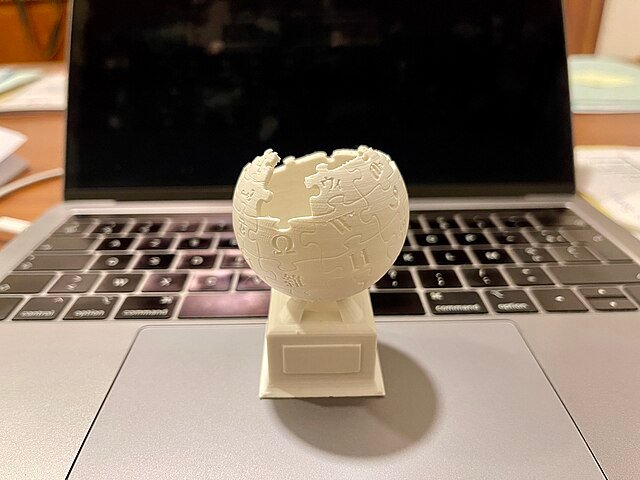<div>
<h2>Wikimedia Deutschland Launches Groundbreaking Wikidata Embedding Project for AI Access</h2>
<p id="speakable-summary" class="wp-block-paragraph">On Wednesday, Wikimedia Deutschland unveiled a new database aimed at enhancing the accessibility of Wikipedia's extensive knowledge for AI models.</p>
<h3>What is the Wikidata Embedding Project?</h3>
<p class="wp-block-paragraph">The Wikidata Embedding Project employs a vector-based semantic search, a cutting-edge technique that enables computers to better understand the meaning and relationships among words, utilizing nearly 120 million entries from Wikipedia and its sister platforms.</p>
<h3>Enhancing AI Communication with the Model Context Protocol (MCP)</h3>
<p class="wp-block-paragraph">This initiative also integrates support for the Model Context Protocol (MCP), a standard that optimizes communication between AI systems and data sources, making the wealth of data more accessible for natural language queries from large language models (LLMs).</p>
<h3>Collaborative Efforts Behind the Project</h3>
<p class="wp-block-paragraph">Executed by Wikimedia’s German branch in partnership with Jina.AI, a neural search company, and DataStax, a real-time training-data firm owned by IBM, this project represents a significant step forward in AI data accessibility.</p>
<h3>Advancements from Traditional Tools</h3>
<p class="wp-block-paragraph">Although Wikidata has provided machine-readable information from Wikimedia properties for years, previous tools were limited to keyword searches and SPARQL queries. The new system is designed to work more effectively with retrieval-augmented generation (RAG) systems, enabling AI models to incorporate verified knowledge from Wikipedia editors.</p>
<h3>Semantic Context Makes Data More Valuable</h3>
<p class="wp-block-paragraph">The database is structured to deliver essential semantic context. For instance, querying the term <a target="_blank" rel="nofollow" href="https://www.wikidata.org/wiki/Q901">“scientist,”</a> yields lists of notable nuclear scientists and researchers from Bell Labs, alongside translations, images of scientists at work, and related concepts like “researcher” and “scholar.”</p>
<h3>Public Access and Developer Engagement</h3>
<p class="wp-block-paragraph">The database is <a target="_blank" rel="nofollow" href="https://wd-vectordb.toolforge.org">publicly accessible on Toolforge</a>. Additionally, Wikidata is hosting <a target="_blank" rel="nofollow" href="https://www.wikidata.org/wiki/Event:Embedding_Project_Webinar">a webinar for developers</a> on October 9th to encourage engagement and exploration of the project.</p>
<h3>The Urgent Demand for Quality Data in AI Development</h3>
<p class="wp-block-paragraph">As AI developers seek high-quality data sources for fine-tuning models, the training systems have become increasingly complex. Reliable data is critical, especially for applications requiring high accuracy. While some may overlook Wikipedia, its data remains more factual and structured compared to broad datasets like <a target="_blank" rel="nofollow" href="https://commoncrawl.org/">Common Crawl</a>, a collection of web pages scraped from the internet.</p>
<h3>The Cost of High-Quality Data in AI</h3>
<p class="wp-block-paragraph">The pursuit of top-notch data can lead to significant costs for AI labs. Recently, Anthropic agreed to a $1.5 billion settlement over a lawsuit related to the use of authors' works as training material.</p>
<h3>Wikidata's Commitment to Open Collaboration</h3>
<p class="wp-block-paragraph">In a statement, Wikidata AI project manager Philippe Saadé highlighted the project’s independence from major tech companies. “This Embedding Project launch shows that powerful AI doesn’t have to be controlled by a handful of companies,” Saadé conveyed. “It can be open, collaborative, and built to serve everyone.”</p>
</div>Feel free to integrate this structured HTML format into your website for optimal SEO and reader engagement!
Here are five FAQs regarding the new project that aims to make Wikipedia data more accessible to AI:
FAQ 1: What is the purpose of this new project?
Answer: The project aims to enhance the accessibility of Wikipedia data for artificial intelligence applications. By structuring and organizing this extensive dataset, the initiative intends to improve AI’s ability to understand, process, and utilize information from Wikipedia efficiently.
FAQ 2: How will this project affect AI development?
Answer: Improved access to Wikipedia data can streamline the training of AI models, allowing them to fetch reliable information quickly. This can lead to more accurate AI responses, better language understanding, and enhanced capabilities in various applications, such as chatbots and search engines.
FAQ 3: Who is involved in this project?
Answer: The project involves collaboration among researchers, developers, and organizations dedicated to advancing AI technology and open data access. This could include academic institutions, tech companies, and the Wikimedia Foundation, among others.
FAQ 4: Will this project change how information is presented on Wikipedia?
Answer: No, the project is focused on making the existing data more accessible for AI. It won’t alter how information is presented on Wikipedia, as the primary goal is to enhance AI’s ability to parse and utilize that information without modifying the source content.
FAQ 5: Where can I find more information about the project?
Answer: More information can usually be found on the project’s official website or through announcements from participating organizations, including updates on development progress, methodologies, and potential impacts on AI and open data communities.
Related posts:
- AI in Manufacturing: Addressing Challenges with Data and Talent
- Exposing Privacy Backdoors: The Threat of Pretrained Models on Your Data and Steps to Protect Yourself
- When Artificial Intelligence Intersects with Spreadsheets: Enhancing Data Analysis with Large Language Models
- Unveiling the Importance of Data Annotation in Common AI Tools


No comment yet, add your voice below!